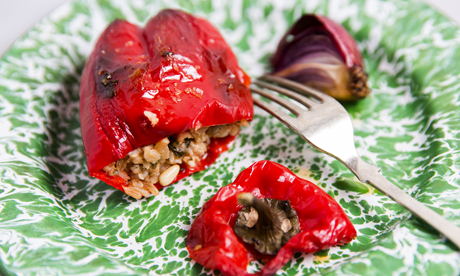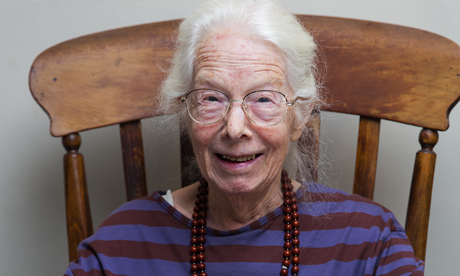Before Kingsland Road: the history of Turkish barbecue
When Hackney citizens were living in mud huts and chomping on boiled roots from the marshes, the inhabitants of the city of Konya in Anatolia were robed in silk and feasting on spicy stews and sophisticated roasts.
And now, centuries later, they have come to our rescue, bringing the best of Turkish cuisine to the Kingsland Road, with produce, restaurants and kebab shops.
We could thank Mevlana, also known as the mystic poet Rumi, for this. He came from Persia and settled in Konya in the thirteenth century, where he established the Sufic version of Islam, a gentle religion — tolerant, all-encompassing, generous. Cooking and the preparation of food was vital to his faith: the process was both a practical reality and a metaphor for the way God works on the human soul.
“I was raw; I was cooked; I was burnt…”, he wrote. The transformative effect of fire was a way of getting close to God. You can cook meat before a fire, or over charcoal, but the browning effect as it burns releases flavours and aromas that were not there before.
And so the actions and disciplines of cooking and serving food were those of a religious apprenticeship, the intensity of flavour in a carefully crafted roast resembled the soul’s ecstasy in communion with God.
Mevlana used metaphors from everyday life to explain this – chickpeas bouncing joyfully in a pot of boiling water were like souls in ecstasy; “Think of me as spinach and prepare me as you will – sour or sweet, cooked means reunion with you.”
Mevlana set up kitchens in his headquarters in Konya, where acolytes had a long and vigorous training, 40 days of abstinence and observation in the kitchen, followed by 1001 days of practical work.
His chief cook, Ates-Bazi Veli, was buried in a tomb next to his own. Today the best cooks in Turkey are trained in Konya, and we could today be enjoying their skills in Dalston, where some of the finest Turkish food in London is to be had.
There were two traditions in Turkish gastronomy, the sophisticated courtly cuisine of Byzantium and Persia, created by chefs in Istanbul and Konya for the ruling classes, heavy with meat and spices, and the peasant cookery of the countryside, a lush and delicious subsistence level way of eating, based on vegetables and pulses, simply prepared. Mevlana’s kitchens made use of both.
We can’t compete with good Turkish meat cooks; we don’t have the skills or the equipment. But we can follow their rich and imaginative vegetable recipes. On a dank wet August Bank Holiday Monday we might be wise to forget our own primitive barbies, and try some simple stuffed or stewed vegetables. Turkish stores all over Hackney have a wonderful range of fresh produce to experiment with.
It’s hard to give exact quantities. Much depends on the size of the peppers. Mevlana would not of course have known them in 13th century Konya, or tomatoes, for they came from South America centuries later, but they are now familiar crops in Turkey. A mixture of pekmez (reduced grape must) and lemon juice gave the acidic fruitiness we get now from tomatoes.
Stuffed Peppers
For 4 medium sized peppers, red or green, you will need:
150 g minced beef or lamb
1 cup of long-grain rice
2 cups meat or chicken stock
2 fat cloves of garlic, chopped
1 medium onion, chopped
Cardamom, aniseed, cinnamon, black peppercorns, freshly ground
1 handful of parsley, chopped
1 dessert spoon tomato puree
1 dessert spoon toasted pine nuts
Wash and dry the peppers and cut off their stalk ends to make little caps. Get rid of the inner core and any seeds. Fry the meat in olive oil along with the garlic and onion. Tip in the rice and stir well. Add the spices to taste and then the stock (or water will do) and tomato puree.
Cook for 10 minutes or until most of the liquid is absorbed. Mix in the pine nuts and parsley and stuff the peppers, closing each one with its cap.
Cook in a hot to moderate oven for an hour or so, this is a good-tempered dish where oven heat and timing can vary.
Stewed Aubergines
You will need:
2 medium sized aubergines, cut into 2 cm chunks
2 cloves of garlic, chopped
1 large tomato, chopped
1 medium onion, chopped
1 dessert spoon pine kernels, lightly toasted
Chopped parsley
Sprinkle the aubergine chunks liberally with salt and let them drain in a colander for an hour. Rinse well and squeeze out the water and bitter juices in a coarse cloth or sieve.
Fry rapidly in olive oil with the garlic and onion, and when cooked through add the tomatoes. Cook down quickly, cool down to room temperature and serve strewn with the pine nuts
and parsley.
The disciplines of cooking and serving food were those of religious apprenticeship
When Kemal Atatürk dragged the crumbling Ottoman empire kicking and screaming into the modern world he established a democratic secular republic with equal rights for women, universal education and
religious tolerance.
But there were casualties; the whirling Dervish sect of Mevlana was banned, the Arabic script was abolished, minority views had a
hard time.
Decades ago I attended a moving ceremony in Konya in which the newly reinstated Dervishes performed their trance-like ceremony, not so much whirling as slowly gyrating in a deep silence, movement with meaning, a celebration of Mevlana’s cherished beliefs and rituals.
The critical role of Turkey in today’s current international crisis can serve as a reminder of how here in Hackney, surrounded by top-notch Turkish cuisine, we have the oppportunity to practice the gifts of tolerance, kindness, generosity and compassion through sharing food, eating together, bringing understanding and humanity to a mixed community.
Stuffed peppers and charred kebabs can be the building blocks of harmony.
Enjoy.
This article was amended on Friday 12 September. Previously Kemal Atatürk was misspelt ‘Kendal’. The spelling has now been corrected.


